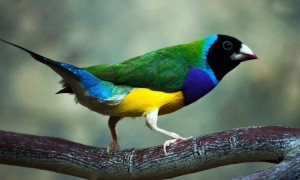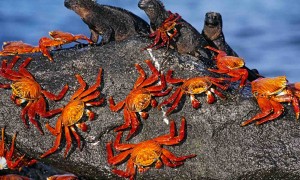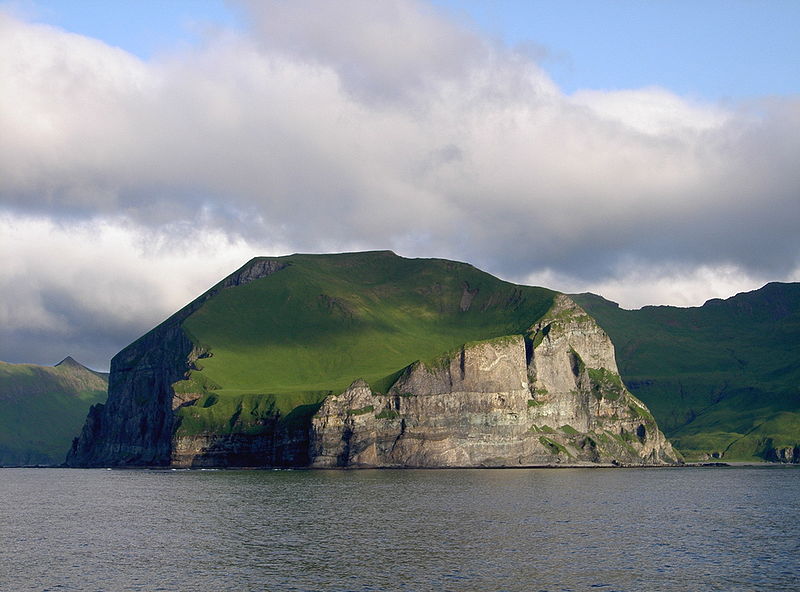
Rat Island or Island of rats is part of the Aleutian Islands in Alaska. It is not inhabited and is 26 sq.m. The name of the island of Aleut language (part of the Eskimo-Aleut language family) is Hawadax – so it was called by the small local population. In fact, the entire archipelago of volcanic islands is called that. With a total area of 360,849 square meters, as none of them is inhabited.
The name was given from Russian captain Fyodor Petrovich Litke, who visited the islands in 1827, during his trip around the world – the reason is the huge population of rats, which at that time already rule the island fauna. Island of rats is located in a highly seismic zone between tectonic plates of the Pacific and North America – as a result, there are often earthquakes such as this in 1965, with a magnitude of 8.7 on the Richter scale.
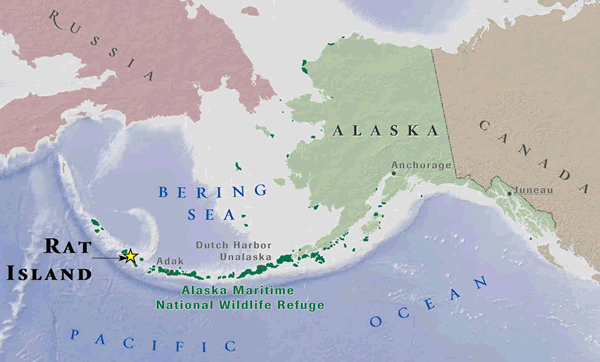
Aleutian Islands are a number of 150 volcanic islands and numerous reefs, located in close proximity to Alaska. In fact, they are the geographical extension of the North American peninsula. The length of the whole archipelago is 2400 km, as it reaches near the Kamchatka Peninsula in the eastern part of the Asian continent. Aleutian Islands are a bridge between Asia and America, which separates the Bering Sea from the Pacific Ocean.
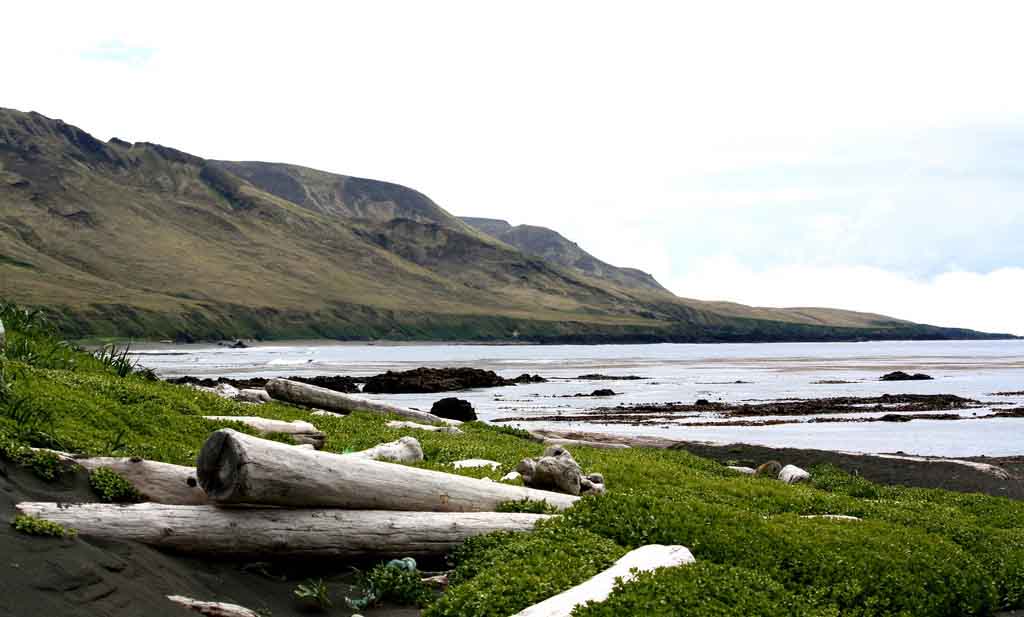
In early 2009, scientists announced that rodents given the name of the island, have disappeared from it. This is done by carefully planned campaign, worth $ 2.5 million, where for a week by air is spread a special poison. A little later environmental specialists said that there are no signs of rats in the area, although such claims require time to fully corroborate. As a result, the researchers found that some birds have returned to the island, including gobble geese, ptarmigan, Falcons-wanderers and Black oystercatchers. They believe that this is a new beginning for the island, which name might also be changed.
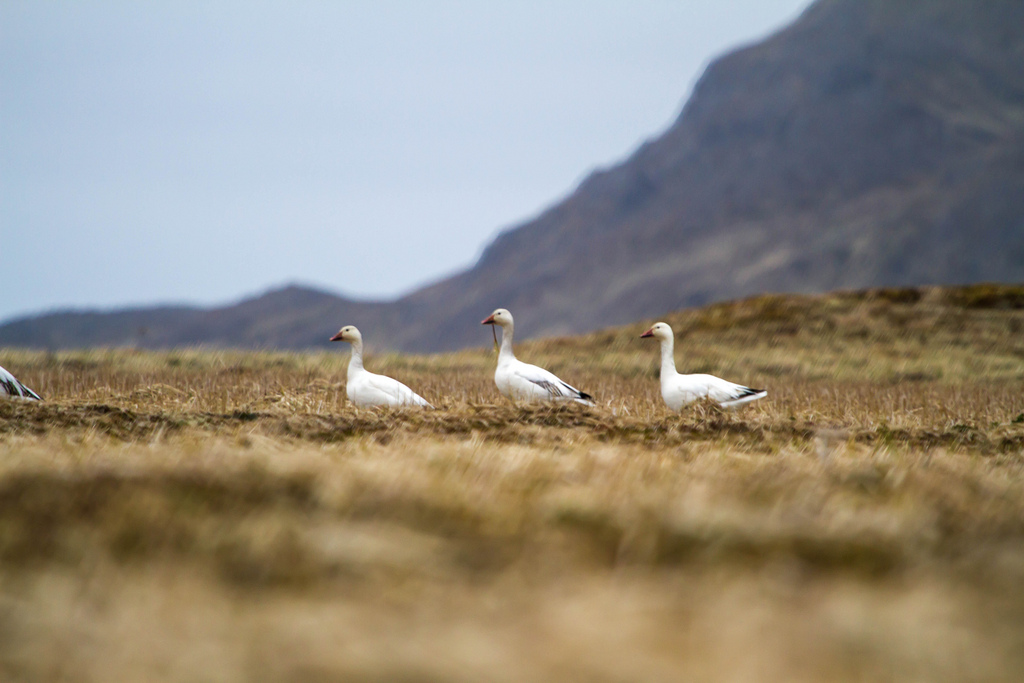
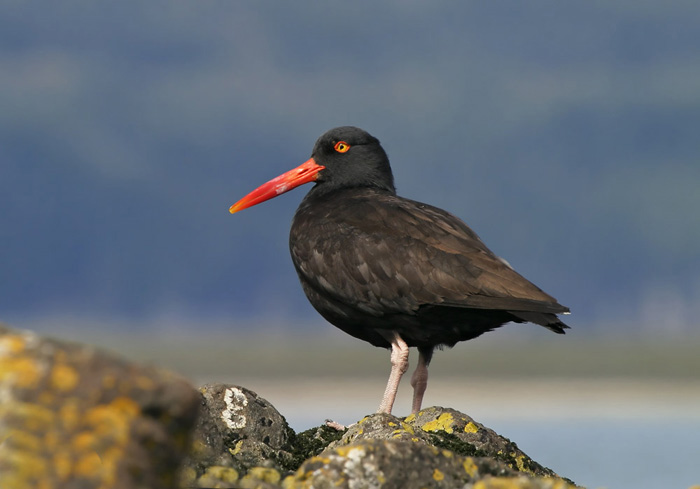
The campaign is a joint project of the federal government and organizations “Protection of Nature” and “Protection of the island” and is among the most ambitious experiments in the world to eliminate destructive to a location types. It drastically changed the ecosystem of the Island of Rats, destroying rodents as they master this whole area for 229 years. The researchers added that the campaign aims to restore balance – rats were artificially imported to the island without a natural part of the island fauna, so this imbalance must be corrected.
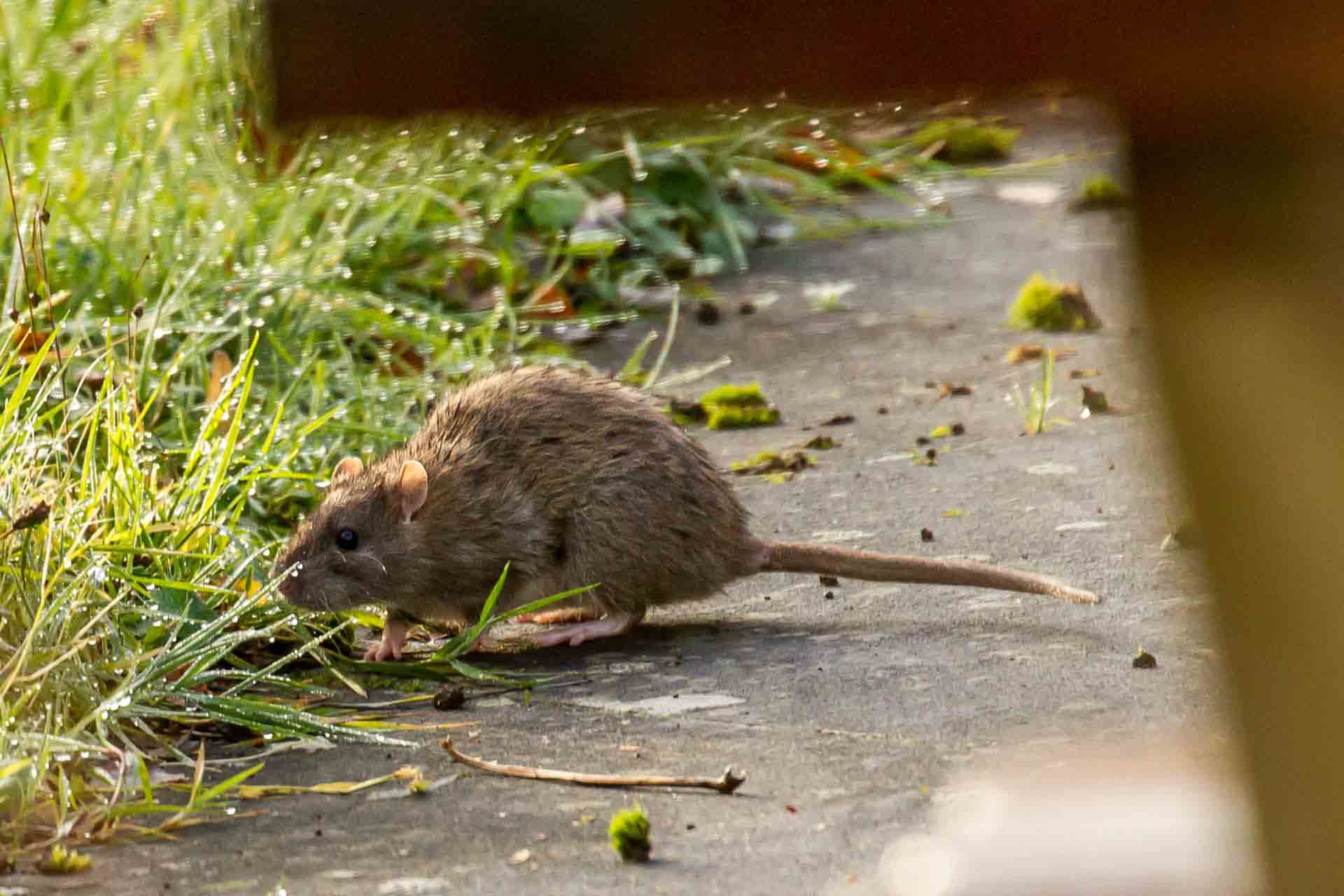
The history of the Island of Rats origins from the distant 1790, when the Japanese vessel was shipwrecked and the escaped rats species Norway or brown rat (Rattus norvegicus) settled on the island. They fall for favorable environment for them and begin to multiply with great speed – later they begin to terrorize the birds living there, with the exception of the biggest representatives, sharply reducing the local bird population. In this invasion certain species of marine birds literally disappear from the island.
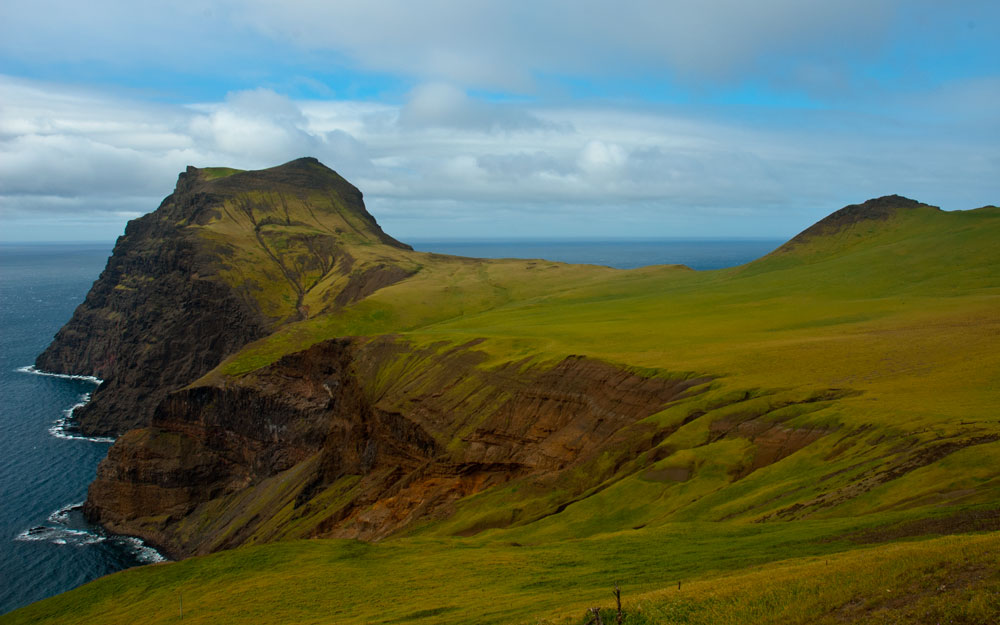
Nowadays rats as a species have settled in around 90% of the islands in the oceans, resulting in 40- 60% of bird species and reptiles of most islands disappearance forever. In addition to the flora and fauna, however, they have caused damage also to entire civilizations. For example, according to scientists the rats in the mystical Easter Island (Easter), which come to the island with the first Polynesian settlers and spread like wildfire across the island. According to their theory, one of the reasons for the disappearance of local civilization are precisely rats whose population probably reached 20 million, due to the lack of natural predators to regulate the number of rats. Rats destroyed the seeds of palm trees and quickly made a thriving island in the desolation without trees and without food for the population.





